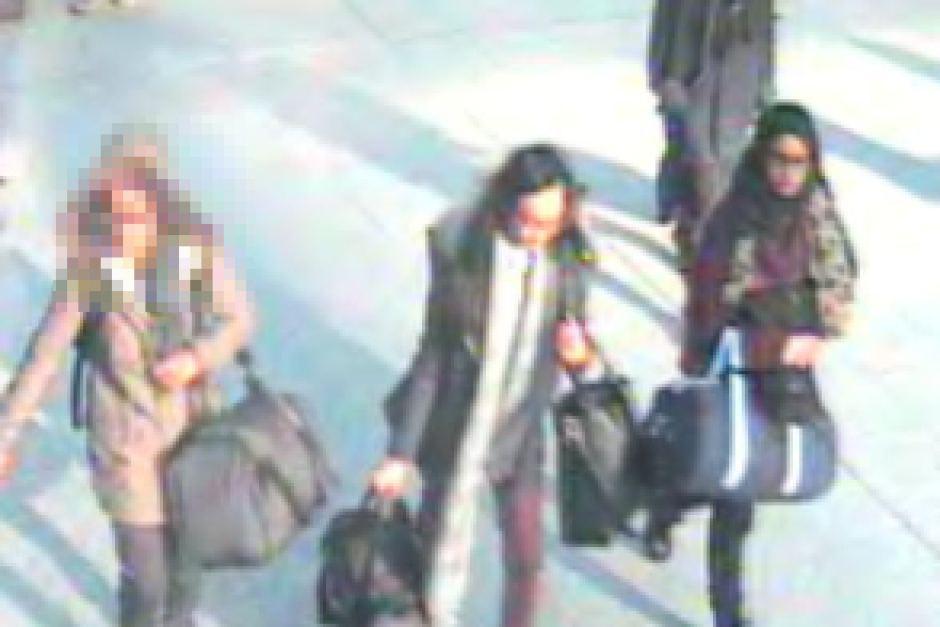What the UK’s ‘Islamic State bride’ case means for Australia’s foreign fighters
Posted By Isaac Kfir on February 20, 2019 @ 15:08

Last week, veteran Times reporter Anthony Loyd travelled to a Syrian refugee camp to interview [1] Shamima Begum, a 19-year-old woman from Bethnal Green in London’s East End, who at the age of 15 left home to join Islamic State. Within 10 days of arriving in Raqqa in 2015, she had married Yago Riedijk, a Dutch convert to Islam.
Begum, who has just given birth to her third child (her two other children died in infancy), said she wants to return to the UK. After Begum spoke with Loyd, her predicament sparked a national debate as to whether she should be allowed to return home.
The UK home secretary, Sajid Javid, stated that he wouldn’t hesitate to prevent her return: ‘My message is clear: if you have supported terrorist organisations abroad I will not hesitate to prevent your return.’, He has now reportedly [2] stripped Begum of her British citizenship, which her family said they will challenge in the courts.
Richard Barrett, the former director of global counterterrorism at MI6, took a different view, arguing [3] that Begum should be allowed to return, and that despite the justifiable concern, ‘governments have a responsibility to address the problems created by their captured nationals and also to look more closely at why they made the choices they did’.
Barrett says leaving people like Begum to the mercy of Syrian or Iraqi authorities who engage in summary execution is an abrogation of moral responsibility. It would further alienate marginalised communities, and could even become a recruitment tool for Salafi-jihadi who claim that the West is hypocritical when it comes to human rights and upholding international norms. Richard Dannatt, a former head of the British army, also joined the debate, asserting [4] that Britain should take back its foreign fighters because it is ‘our responsibility’.
There are three key questions to consider in the Begum case:
- As a British national, is Begum entitled to return to her country of birth, even if her passport has been cancelled?
- Did Begum commit any offence under UK law while she was living in Syria and Iraq?
- Does Begum pose a genuine security risk if she does return home?
Begum remains a British citizen and therefore is entitled to receive consular support or get on a plane and return to the UK. Importantly, there’s nothing that prevents the authorities from detaining and prosecuting her if they have evidence that she had committed a crime beyond travelling to a ‘designated area’ (in Australia, it’s the ‘declared area’ offence). There’s no evidence to suggest that Begum was anything more than a wife and mother. Nor is there any evidence that she participated in fighting or engaged in propaganda activities. The fact that she left for Syria when she was 15 raises questions as to exactly how knowledgeable she was about the modus operandi of Islamic State.
The question of whether Begum poses a security risk is challenging. The security services would need to assess her continuing allegiance and commitment to the Salafi-jihadi cause. Recent events such as the Westminster Bridge and Bourke Street attacks—where the security services had investigated the assailants and then judged them to be of low risk—have raised questions about risk assessments and whether radicalised people should be taken off a watch list.
Alex Younger, the current head of MI6, claims [5] that returning foreign fighters pose a real threat because ‘they are likely to have acquired the skills or connections that make them potentially very dangerous’. He points out that people in Begum’s situation would require a ‘very significant level of resource’ to ensure that they don’t pose a security threat. Assistant Commissioner Neil Basu, the head of counterterrorism policing at the Metropolitan Police, said [6] that anyone returning from a conflict zone should expect a police investigation—something that Begum seems to understand would happen should she return.
The debate surrounding Begum is relevant to Australia, as it’s estimated that of the 200 Australians who travelled to Syria and Iraq to join Islamic State, around 100 currently remain in the region. ASIO estimates that only a few would seek to return, and the government has laid out a framework that demands whole-of-government coordination aimed at assessing each case on its merits.
The assessment, led by the AFP’s Returning Terrorist Suspects Team, involves first determining whether the person has committed an offence by travelling to a declared area. Further criminal charges may be laid if the person had fought in the conflict; funded, trained, recruited someone to fight in the conflict; or supplied or funded weapons to anyone fighting in the conflict.
The prevailing view in Australia is one of zero tolerance towards those who have left to join Islamic State. But the issue becomes trickier when we consider what to do with people who had no combat role—Islamic State supporters who were effectively misguided individuals (it’s well documented that Islamic State has an effective grooming strategy when it comes to vulnerable people). There’s also the question of what to do with minors or children who were taken to a declared area by their parents or born in a declared area.
It‘s important that we engage in a public discussion about what to do with these individuals. Do we share Dannatt’s view that we have a moral responsibility to take back those who wish to return home, or do we take a hardline approach, judging Islamic State fighters and supporters to be an unacceptable security risk?
Article printed from The Strategist: https://aspistrategist.ru
URL to article: /what-the-uks-islamic-state-bride-case-means-for-australias-foreign-fighters/
URLs in this post:
[1] interview : https://www.thetimes.co.uk/article/shamima-begum-bring-me-home-says-bethnal-green-girl-who-fled-to-join-isis-hgvqw765d
[2] reportedly: https://www.itv.com/news/2019-02-19/shamima-begum-has-uk-citizenship-revoked-by-british-government-itv-news-learns/
[3] arguing: https://www.theguardian.com/commentisfree/2019/feb/14/shamima-begum-britain-isis-recruit
[4] asserting: https://www.theguardian.com/world/2019/feb/17/trump-is-right-uk-must-take-back-isis-fighters-ex-british-army-chief
[5] claims: https://news.sky.com/story/mi6-boss-runaway-is-teen-shamima-begum-potentially-very-dangerous-11638055
[6] said: https://www.birminghammail.co.uk/news/midlands-news/shamima-begum-who-fled-uk-15840939
Click here to print.